Don’t overlook these 12 impressive works of historical fiction
Immerse yourself in these trips back in time to Spain, France, Mexico, and Taiwan. Or maybe you'd prefer to visit the Texas borderlands, the Rockies, Gilded Age Boston, or New York City.
I’m not sure why, but I tend to read more historical fiction during the fall and winter. But this summer I made the conscious decision to read more historical fiction since I had so many of these novels on my bookshelves waiting to be read. In the last several weeks I’ve read James by Percival Everett, Restless Dolly Maunder by Kate Grenville, Heirlooms by Rachel Hall, Our Narrow Hiding Spaces by Kristopher Jansma, and The Familiar by Leigh Bardugo, all of which I recommend.
As we hit the dog days of August, you might need something different to read. Or a book you’re not familiar with. So here are a dozen works of historical fiction that are worth adding to your To Be Read list. I made my selections based in part on whether a book deserves more attention than it has received. (That’s why this list does not include The Women, We Were the Lucky Ones, Pachinko, Great Circle, The Love Songs of W. E. B. Du Bois, and other novels that were bestsellers or selected by one of the celebrity book clubs.)
Many of these novels shine a light on little known people, issues, and times. They are set in diverse locales ranging from Spain, France, and Argentina to Australia, Taiwan, and Tibet. The books with American settings take place in the Texas borderlands, the Colorado Rockies, northern Maine, Boston, San Francisco, and New York City. I’m confident that there is something here for every reader.
The Bullet Swallower — Elizabeth Gonzalez James
Antonio Sonoro is a bandit who’s running low on luck and money, and the tiny town in Mexico where he lives with his wife and children has run dry after a long drought. So when he hears about a train carrying gold, he thinks his problems are solved. But their trouble is just beginning. Sixty-nine years later, his grandson Jaime is Mexico’s most famous actor and singer. Unfortunately, his ancestor’s bad luck is about to visit him as well – unless he can find out the truth behind the violent criminal life of Antonio, the legendary El Tragabalas, The Bullet Swallower. I really enjoyed the section where Antonio and a sidekick he ends up saddled with try to outrun the Texas Rangers. It’s gritty and violent with a palpable sense of place, sort of like a more accessible Cormac McCarthy. This debut novel is a family drama, an adventure, and a mystery that takes on racism, Tex-Mex border politics, and the trauma that is passed from one generation to the next.
Whale Fall — Elizabeth O’Connor (2024)
Elizabeth O’Connor’s debut can best be described as a cross between the thorny issues at play in Audrey Magee’s The Colony and the spare but powerful novellas of Claire Keegan. Set in 1938 on an inhospitable island off the coast of Wales, it’s the story of Manod, a smart and ambitious 18-year-old who is starting to feel restless with the restrictive lifestyle and limited opportunities on the island. She and her younger sister have been raised by their widower father, a fisherman; Manod is fluent in English while her sister refuses to speak anything but Welsh.
When two ethnographers from Oxford arrive to study the islanders’ life, they take to Manod because she reads and speaks English so well. Soon she is working as their assistant and liaison to the other islanders. She is intrigued by Edward and Joan, who represent a link to the outside world. While they learn about life on the island, Manod learns about life in England and, from Joan, how some modern women are choosing to live. A foreboding mood hangs over this triangle, which soon becomes fraught with the characters’ varied purposes and ambitions. This friendship is Manod’s first experience with outsiders and profoundly affects her. This is a slow-paced, pensive story, but I found it completely absorbing, in part because of its palpable sense of time and place and O’Connor’s lovely poetic prose.
The Literary Undoing of Victoria Swann — Virginia Pye (2023)
Virginia Pye’s latest work of historical fiction (after River of Dust and Dreams of the Red Phoenix) is set in Gilded Age Boston. Victoria Swann is a writer of formulaic romance novels who aspires to write serious fiction that depicts the lives of real women. Her publisher, focused on the bottom line, resists her ambitions. But the arrival of a young editor, who is more open to her ideas, provides the opportunity she seeks. Victoria begins writing realistic fiction based on the experiences of young women she knows and observes. Before long, she becomes a voice for women’s rights both in her books and in her own life. The Literary Undoing of Victoria Swann shows a woman fighting to live the life she wants and to provide readers with stories featuring three-dimensional women characters. Pye makes the pages turn with snappy dialogue and period details that capture the difficult living and working conditions of women, the privileged lives of the wealthy, and the unique character of Boston in the 1890s.
Kantika — Elizabeth Graver (2023)
Kantika (“song” in Ladino, the Judeo-Spanish language) is the story of Rebecca Cohen, born into a successful merchant family in Istanbul in the years before WWI. But the war and the fall of the Ottoman Empire results in the loss of the family’s fortune, forcing them to move to Barcelona. Like her ancestors, Rebecca must fashion a new life in a new land. But her feckless husband dies, leaving her with two sons. She eventually decides to try again in Cuba before moving to New York City for an arranged marriage to a man with a disabled daughter, Luna. Kantika introduces us to a woman who is flawed but fiercely determined to provide a good life for her sons. Her difficult relationship with Luna changes both of them. Like the Sephardic Jews before her, Rebecca carries her heritage with her to the “new world,” adapting as necessary to survive and at times even thrive.
Peach Blossom Spring – Melissa Fu (2022)
Peach Blossom Spring is the story of four generations of one family over 60 years. When Japan invades China in 1938, Meilin and her young son, Dao Renshu, flee their home in central China. They eventually end up in Taiwan, where Chiang Kai-shek and the Chinese Nationalists have migrated with the hope of returning to mainland China after the Communists are defeated. The first half of Peach Blossom Spring is an alternately harrowing and heartwarming depiction of refugee life. The second half of the book is the story of Renshu, now renamed Henry Dao, as he attends graduate school in Chicago in the 1960s and settles into life in the United States. But family and political issues complicate his otherwise contented life. Peach Blossom Spring is a satisfying novel that begins as a riveting story of war and refugee life and then shifts to a domestic drama that explores immigration, culture, and heritage.
The Berry Pickers — Amanda Peters (2023)
The Berry Pickers examines the lengths people will go to for family – to have one, to hold one together, or to rebuild one – and the lies we’ll tell ourselves and others in the process. It’s the 1970s, and a group of Mi’kmaw workers from Nova Scotia travel to Maine in the summer to pick blueberries. A family’s youngest child, four-year-old Ruthie, disappears and the search is unsuccessful. Eventually, the family returns to Nova Scotia and attempts to go on without their daughter and sibling. Ruthie’s six-year-old brother Joe is so haunted by the loss that his life is completely upended. He is one of the novel’s two narrators, along with Norma, the only child of an older couple from rural Maine. We learn early on what happened to Ruthie. The mystery that The Berry Pickers probes is why and how. The alternating perspectives allow us to see how the two families manage in the 20 years after Ruthie’s disappearance. This is a heartfelt novel about racism, family trauma, identity, and forgiveness.
You can support this newsletter by ordering books through my shop on Bookshop.org. https://bookshop.org/shop/openbook
On a Night of a Thousand Stars – Andrea Yaryura Clark (2022)
Most Americans are unfamiliar with Argentina’s notorious Dirty War of the mid-1970s, in which the military regime attempted to crush dissent by “disappearing” dissidents and other opponents. In her debut novel, Clark tells the story of Argentine diplomat Santiago Larrea and his family. When he’s named Ambassador to the UN, his daughter Paloma begins to investigate his life in the years leading up to the start of the Dirty War in 1976. What she learns forces her to reconsider her own life. [For nonfiction about this dark chapter in Argentina’s history, read Prisoner Without a Name, Cell Without a Number by influential newspaper publisher Jacobo Timerman and My Name is Victoria: The Extraordinary Story of One Woman’s Struggle to Reclaim Her True Identity (Other Press) by Victoria Donda.]
Gilded Mountain – Kate Manning (2022)
This book hits my sweet spot for historical fiction: a young and determined female protagonist who comes of age amidst a labor strike against a powerful company that dominates the local community. In Gilded Mountain, the Pelletiers, a French-Canadian family, settle in Colorado and the father goes to work at the marble quarry. Seventeen-year-old Sylvie Pelletier works for the local newspaper, which has exposed the quarry’s working conditions and is covering the resulting labor strife. Add a credible love story, a probing examination of race and class, a strong sense of place, and prose as clean and crisp as the mountain air, and you’ve got an intellectually and emotionally satisfying read.
The Postcard — Anne Berest (2023)
In January 2003 a postcard arrived at the Paris home of writer Anne Berest’s parents. The only message: the names of her maternal great-grandparents and two of their children, all of whom had been murdered in the Holocaust. There is no return address and the handwriting is unusual. Who sent it and why, 60 years later? In an attempt to discover the identity of the sender, Berest and her mother begin investigating the past to learn what happened to her great-grandparents and their children.
The result of their search is this memoir/novel hybrid. It’s a history of the Rabinovitch family, who fled Russia to Latvia after the Revolution before settling in France, where they were caught up in the Nazi genocide of Europe’s Jews. Berest also explores what life was like for Jews in Vichy France, with its collaborators and resisters. The Postcard is also an examination of the effect of the Holocaust on one Jewish family’s descendants. Berest, a secular Jew, is compelled to examine her upbringing and reconsider her relationship to Judaism. And yes, she eventually learns who sent the postcard and why.
We Measure the Earth with Our Bodies – Tsering Yangzom Lama (2022)
We Measure the Earth with Our Bodies is a capacious novel that sweeps over continents, decades, and generations to depict one family’s escape from Tibet after China’s invasion in the 1950s to a refugee camp in Nepal, then eventually to Canada. The various sections are told from the perspectives of Lhamo, who was a child when she fled across the Himalayas; her younger sister, Tenkyi, the smart, promising one; her daughter, Dolma, a Tibetan Studies scholar in Toronto; and her heart’s love, Samphel, who disappears and reappears in her life like a passing breeze. The question Lama asks through this novel is what will the world do about this injustice, about the plight of displaced Tibetans.
Vera – Carol Edgarian (2021)
Fifteen-year-old Vera Johnson is the illegitimate daughter of Rose, the infamous madam of a bordello in the Barbary Coast section of town, and a father whose identity remains unknown to Vera. Rose has farmed Vera out to be raised by a Swedish immigrant widow with a daughter of her own. Not surprisingly, Vera feels she has no real family and grows into a scrappy, street-smart girl. Her unsettled childhood has prepared her to adapt to a city and society in ruins. Vera begins shortly before the April 18 quake and follows Vera and her family and friends during a year that changes their lives. This coming-of-age story about a young woman and a city that didn’t play by the rules is a satisfying read.
The Yield — Tara June Winch (2020)
Winch tells the heartbreaking story of the attempted genocide of Aboriginal Australians, first by British colonizers and then by Australians in the 20th century, followed by government policies and a national culture that has marginalized Indigenous people. The heart of The Yield concerns August Gondiwindi, who is living in self-imposed exile in England when she learns that her grandfather Albert, who raised her, has died. Twenty years after her sister Jedda’s disappearance when she was 10, August returns to the farming town of Massacre Plains for the funeral. She soon learns that a huge mining company has purchased the land on which her family lived, which technically belonged to the government. The mostly white residents of Massacre Plains are desperate for the jobs the mine will bring, and they care little about the destruction of the Gondiwindi property outside of town. The issues depicted in The Yield are both particularly Australian and sadly universal.

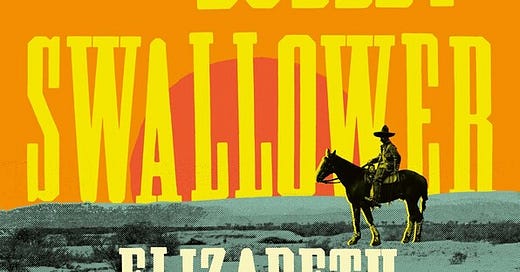


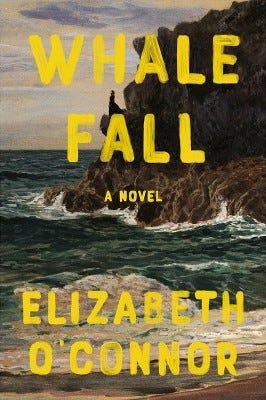
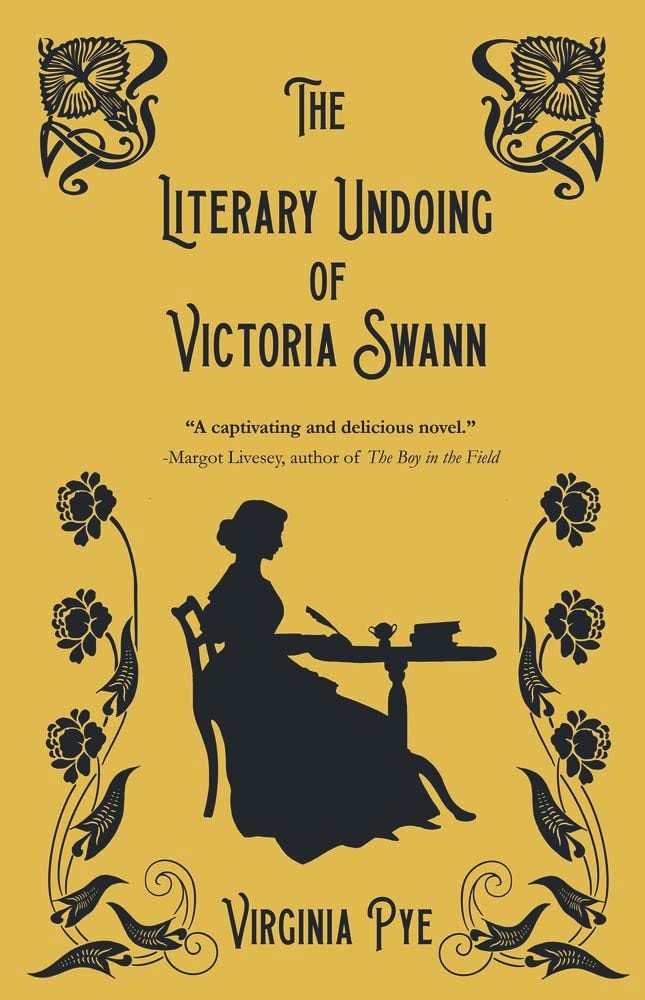
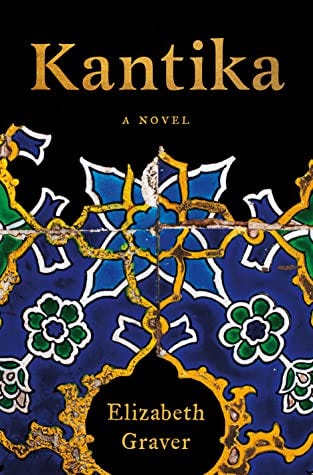
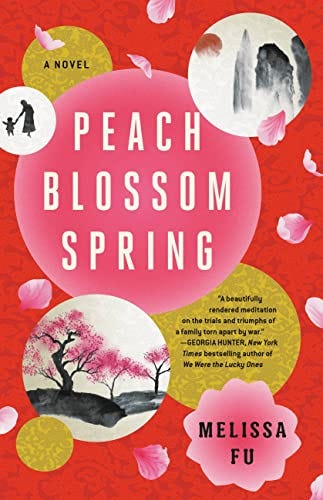
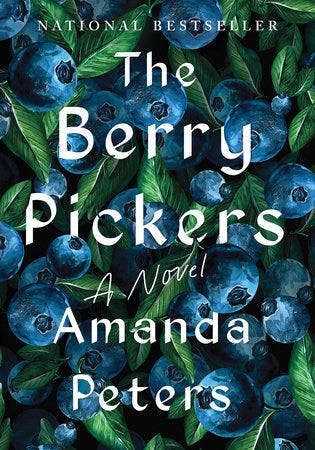

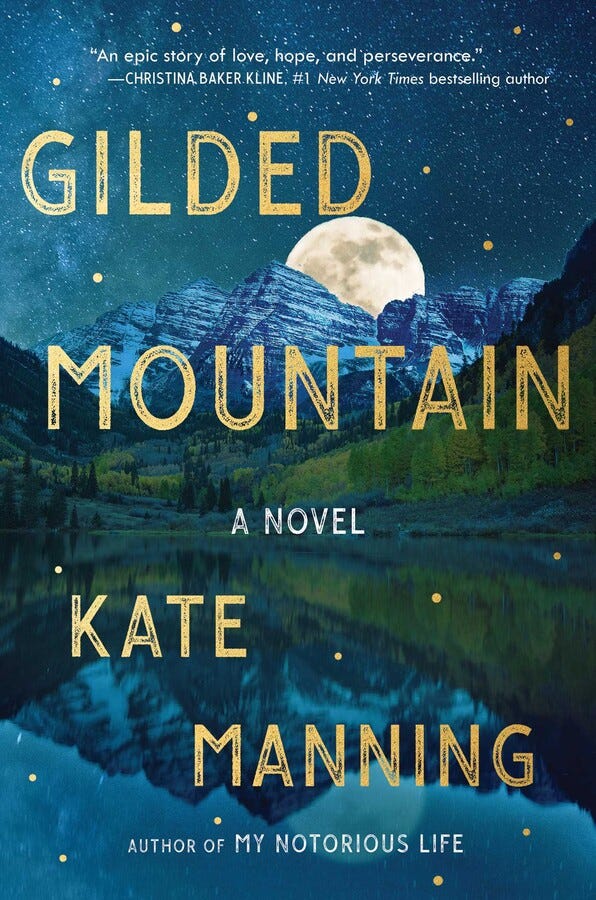
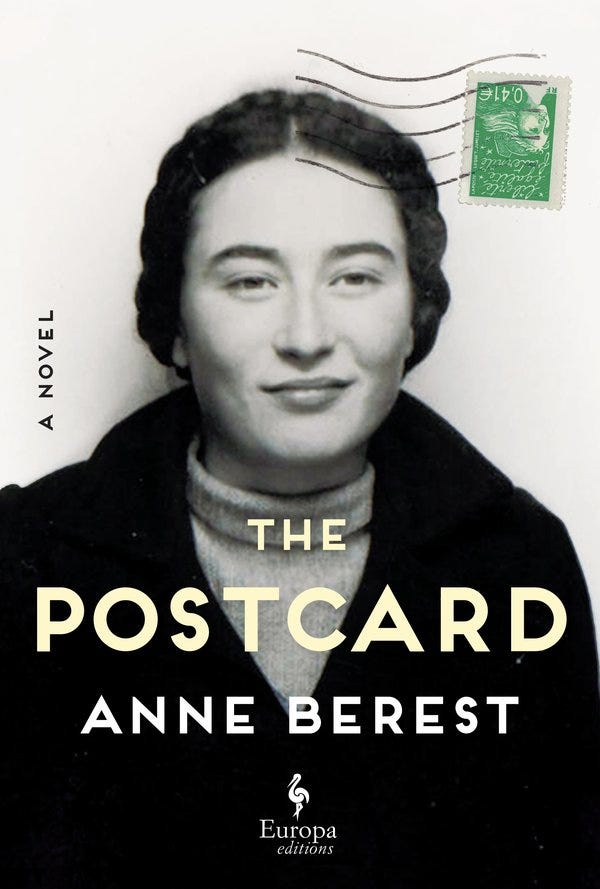

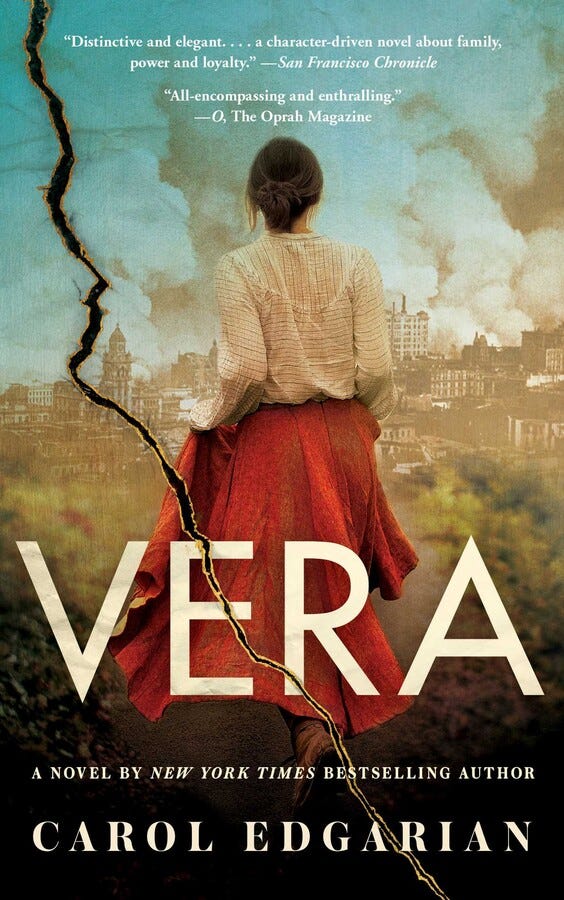
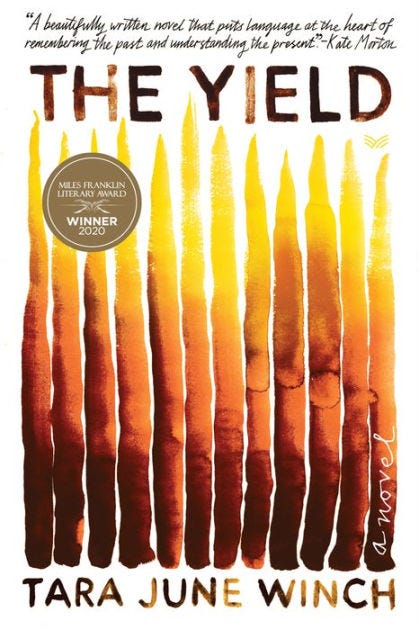
Great recommendations, thanks! And hooray for The Postcard, Kantinka, and Heirlooms, all of which are excellent. (I heard Ann Berest speak in May at the Jerusalem Writers’ Festival and then went up and fangirled her. 😊)
Audrey Magee meets Claire Keegan. "Slow paced and pensive." WHALE FALL sounds mesmerizing.